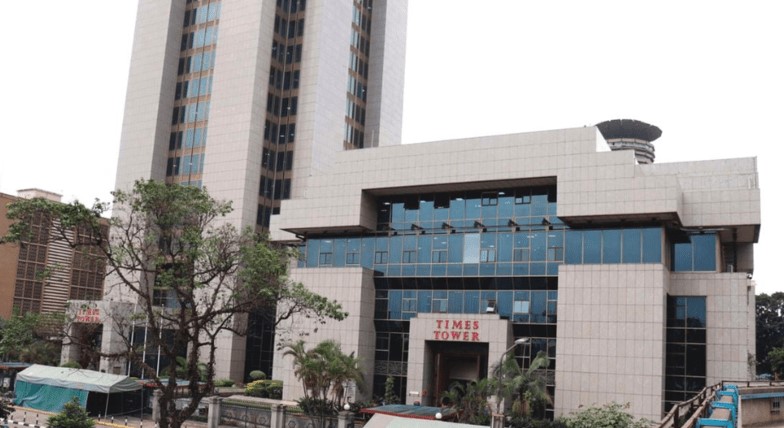KRA misses revenue target by Sh163 billion in first half of FY 2024-2025

The taxman collected Sh1.07 trillion between July and December 2024, falling short of the Sh1.23 trillion required to stay on course to meet the full-year target of Sh2.47 trillion.
Kenya Revenue Authority (KRA) has reported a shortfall in its revenue collection for the first half of the Financial Year 2024-2025, missing its target by a staggering Sh163.46 billion.
The taxman collected Sh1.07 trillion between July and December 2024, falling short of the Sh1.23 trillion required to stay on course to meet the full-year target of Sh2.47 trillion.
More To Read
- KRA extends tax filing deadline by one day after taxpayers faced technical hitches
- KRA waives Sh165 billion in penalties as over three million Kenyans benefit from tax amnesty
- State slashes digital transfer tax to 1.5 per cent to boost tech sector
- KRA surpasses Sh2 trillion in revenue collection as growth hits 6.1 per cent
- Treasury targets foreign firms in public tenders with fresh tax proposal
- Kenya lost over Sh500 billion to tax waivers and corruption- report
The shortfall comes at a time when the government has been grappling with the consequences of the Finance Bill, 2024's rejection.
The bill, which included a series of proposed tax increases, was dropped under pressure from widespread protests earlier in the year.
This rejection has led to concerns over the government's ability to raise the necessary funds to finance its budget.
However, despite missing the target, KRA's collections were still higher by Sh23.15 billion compared to the same period last year.
This represents a slight improvement and is seen as a positive sign, even though it wasn't enough to close the gap in the target.
The government has faced increasing pressure on tax matters, particularly with the rejection of the Finance Bill, which was a response to protests that escalated in June.
The decision to abandon the bill came after intense protests across the country, which led to President William Ruto bowing to public pressure.
The rejection of the bill has had a direct impact on the government's tax revenues, with a growing reliance on traditional sources of revenue collection instead of new tax policies.
Tax administration
The Parliamentary Budget Office (PBO) has weighed in on the situation, noting that rather than seeking new taxes, the government could improve tax revenues by enhancing tax administration.
In its latest review, the PBO suggests that improving enforcement of existing tax policies, utilising data analytics, and adopting more technology-driven solutions could be key to boosting revenue without burdening Kenyans with new taxes.
"Rather than relying on the introduction of new tax policies that are likely to create new tax burdens on Kenyans, the government may focus on improving tax administration through better enforcement of current tax policies, enhanced data analytics, and increased use of technology to simplify tax processes and improve tax compliance," the PBO states.
In the face of these challenges, the National Treasury had previously warned that the rejection of the Finance Bill would have adverse effects on the country's tax revenue target.
Despite the shortfall, the first-half collection allowed the government to spend more on critical development projects and pension payments.
During the first half of the financial year, Sh129.82 billion was allocated to development projects, marking an 84.4 per cent increase from the previous year's Sh70.4 billion.
This jump in development spending is seen as a significant effort to improve infrastructure and support national growth, especially as previous years saw constrained spending due to high debt servicing.
Additionally, pension payments to retired civil servants rose by 44 per cent, reaching Sh82.8 billion compared to Sh59 billion during the same period last year.
The increased spending in both these areas reflects the government's continued commitment to development and the welfare of senior citizens, despite the challenges in meeting its revenue targets.
While KRA's revenue collections for the first half of the year show some progress, the ongoing tax shortfall highlights the difficulties the government faces in balancing revenue generation with the financial demands of the country.
Moving forward, authorities will likely need to explore other avenues for enhancing tax compliance and revenue collection without further inflaming public discontent.
Top Stories Today















































